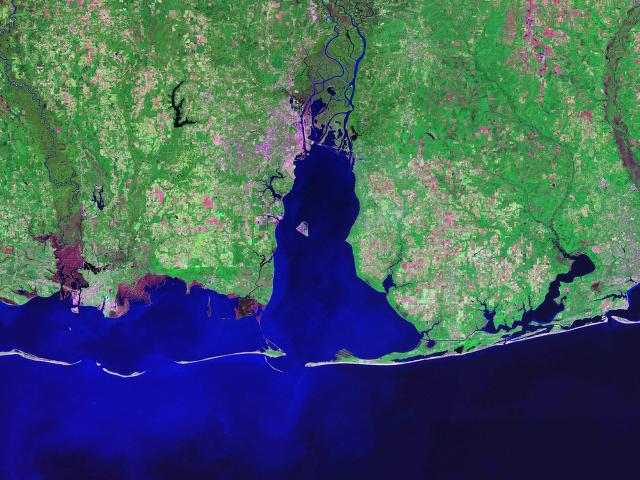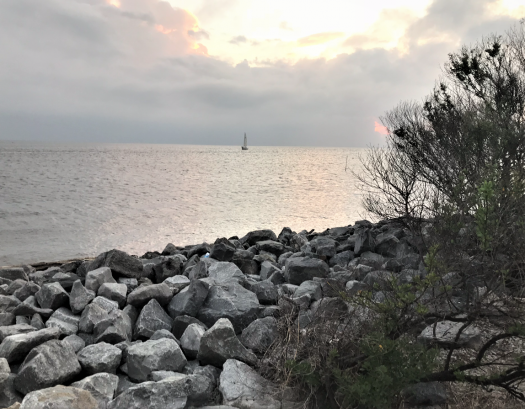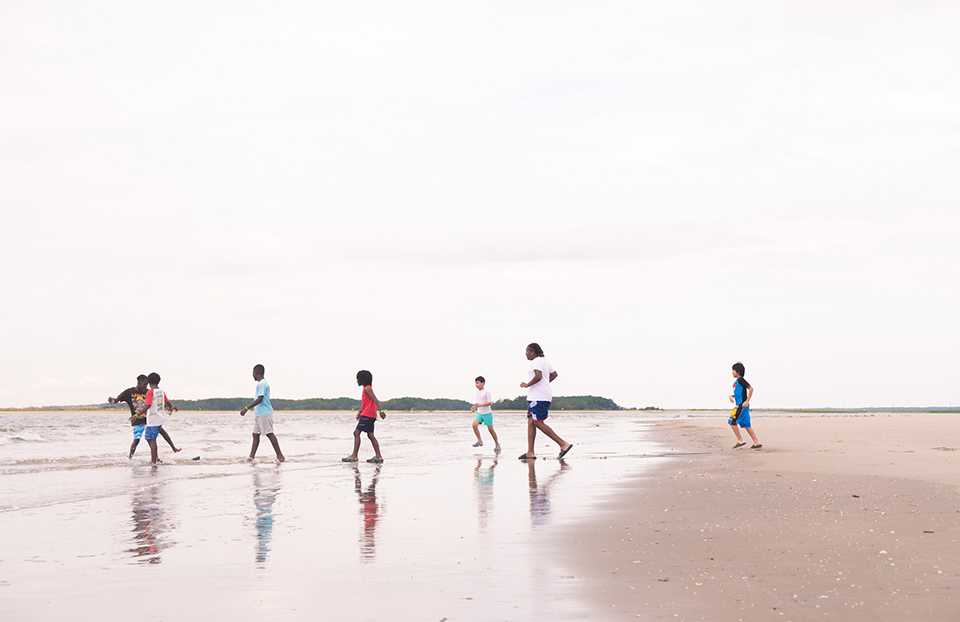Threats to Alabama’s Mobile Bay Jubilee: One student takes a closer look

During the summer months, swarms of people run to the southern coastal area of Alabama to fill their buckets with fish and crustaceans. This event, known as the Jubilee, is a rare natural occurrence, but a common phenomenon in the Mobile Bay, an inlet of the Gulf of Mexico with one of the most biologically sundry ecosystems in the world.
Sarah Van Winkle, a rising senior at the Alabama School of Math & Science, is no stranger to the event. She grew up in the Mobile Bay and appreciates the region for all it has to offer. “Living here, the bountiful array of fauna and flora never ceases to amaze me,” Sarah shared.
Sarah is now hard at work on a project addressing the current environmental threats to the Mobile Bay. “My friends and I, like many native Mobilians, often take fun trips to its sandy beaches and rocky jetties,” Sarah said. “Yet, nationally growing environmental concerns for our oceans led me to wonder: how is our own Bay being affected by human interference?”

In her most recent science fair project, Sarah assessed the health of the Mobile Bay like many of her fellow scientists, but she decided to extend the scope of the research to the Mobile Tensaw-Delta, and the canals of a residential district in Fairhope, Alabama. She analyzed key nutrient and metal levels in the marine ecosystem and found key points of water pollution within the Mobile Delta and along the eastern side of the Bay. Sarah’s hypothesis was that there would be variation in nutrients and contaminants among four sampling sites. To test the hypothesis, she analyzed levels of 12 – 14 distinct parameters at the four sites, including ions such as nitrates, sulfates, and phosphates as well as metals such as lead and mercury.
“To me, this honor symbolizes that the ten months of late night readings, weekend field expeditions, and after-school sessions in the laboratory have truly come to fruition and impacted lives.”
For this project, Sarah was chosen by her science fair, Mobile Regional Science and Engineering Fair, as one of this year’s 24 Society for Science & the Public Community Innovation Award winners. This award honors students participating in science fairs around the world who are making a difference in their communities. “To me, this honor symbolizes that the ten months of late night readings, weekend field expeditions, and after-school sessions in the laboratory have truly come to fruition and impacted lives,” Sarah noted.
Through her project, Sarah found that turbidity, an important test of water quality, increased exponentially as water streamed from Sibley Creek to the surrounding canals. This result showed clearly that there is pollution and that the area is filled with microscopic debris, making the water cloudy and hazy.

Thanks to the mentorship of her high school biology teacher, James NJenge’re, Sarah was able to apply experimental methods, statistics, and data analysis to her project. “I am forever thankful that he took time out of his busy schedule to help me do something that I love,” Sarah said.
“Our local aquatic ecosystem is in danger of chemical pollution from a variety of sources, which could lead to disastrous economic and biological effects in the near future,” Sarah explained “Some of these pollutants – for example excessive nitrite and nitrate levels and traces of mercury – could lead to extreme hypoxic conditions or eutrophication of the ecosystem.” Eutrophication is a common problem to America’s estuaries, where overgrowth of algae creates a dead zone, depleted of oxygen, leading to smaller harvests of marine animals and rising costs of seafood.
While Sarah has a passion for environmental science, she plans to focus her future academic studies in biomedical engineering and medicine. She hopes to attend the Massachusetts Institute of Technology in Boston.


